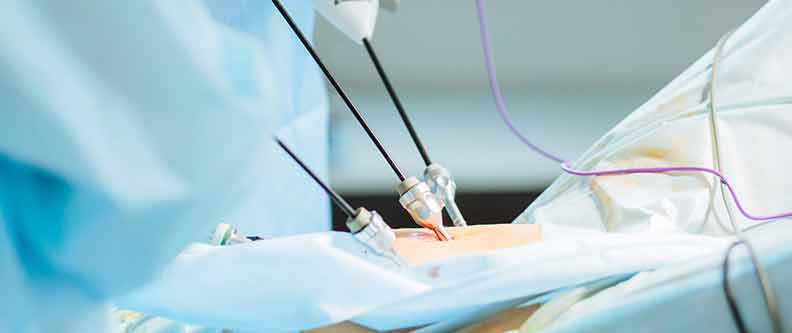
Many Americans suffer from back pain. The sources are as varied as the levels of pain the sufferers experience. One common cause of back pain is lumbar spinal stenosis, or LSS. Once the doctor has diagnosed this as the specific cause of their patient’s pain, they can make a treatment plan. Pain management used to look like pills and suppressing pain, but not treating the actual problem. Thankfully, for people with chronic pain today, NJ pain management doctors have many tools and treatments to help patients. In this article, we’ll be looking specifically at treating LSS. No two case of LSS are exactly the same so doctors need to be able to personalize treatment plans also. Medical advances now allow NJ pain management centers to treat each patient individually and give them the best chance at a pain-free life.
What is LSS?
Lumbar spinal stenosis is a very common cause of back pain. Millions of people are diagnosed with this condition. It is a spinal issue where there is a narrowing of the spinal canal. This contraction compresses nerves causing constant pain for the patient. Aside from the pain, there are many other side effects of LSS including numbness, tingling, and weakness in the back and legs. In more severe cases, people can experience urinary incontinence, sexual dysfunction, or loss of bowel control. While medications can help relieve the pain temporarily, without addressing the cause, the pain will always return. Decompression surgery used to be the only other option for sufferers. Because many patients are older, surgery is not always the best option. Patients are grateful that today, there are many non-surgical and non-invasive treatments that help to improve their quality of life and diminish pain.
NJ Pain Management for LSS Includes the mild® Procedure
Developed by Vertos Medical, minimally invasive lumbar decompression, or mild®, is one popular treatment that NJ pain doctors have been using to help patients suffering with LSS. This procedure is similar in safety to an epidural injection making it an ideal treatment for many patients. There are no implants, no stitches, and no anesthesia. Doctors can perform the procedure in less than in an hour through a small incision in the back. The incision is smaller than the size of a baby aspirin. Through this incision, the doctor will begin to remove pieces of bone and ligament to restore space in your spine. A big advantage of this procedure is that it will not interfere with any future treatments for back pain if they should arise. Following the procedure, most patients return home the same day and return to normal activity within 24 hours.
If you suffer from LSS and think the mild® treatment may be right for you, contact NJ pain management facility Progressive Pain Management. They not only offer the mild® procedure, but many others as well to help patients suffering from chronic pain due to a variety of reasons.
Other Treatments for LSS Work Too
LSS isn’t always treated with a medical procedure. Oral steroids may be enough to relieve the discomfort in mild cases. Occasionally, a NJ pain management doctor may also prescribe physical therapy along with oral medication to alleviate the pain associated with LSS. Non-surgical options are always the best place to start for any patient unless the pain is disruptive to your life.
The next step up in treatment for LSS would be injections. Epidural injections are a common treatment for patients suffering from spinal stenosis. Doctors inject a combination of corticosteroids and numbing agents into the affected area to reduce inflammation. Platelet rich plasma injections are an alternative treatment for LSS that are becoming more popular. This treatment is a type of regenerative medicine. The goal is to stimulate healing and growth of ligaments and tissues in a specific area using the patients own stem cells and plasma.
Just as there is less invasive treatments, there are some more invasive surgeries that can lessen the patients suffering. There are procedures that work by implanting a spacer. This quickly and easily creates space where there was none. Once the compression is eased, the agony abates as well. These types of procedures, thanks to the advancement of the minimally invasive procedures, are now used as a last case or worst-case scenario instead of being a NJ pain management doctor’s only option.
NJ Pain Management is Giving Patients Relief
Everyone has experienced pain. In most cases, it is temporary, associated with an injury, and when that injury heals, the pain ceases. This type of pain is easy to treat because there is not a long-lasting source of pain. In the case of people with chronic pain like sinus pain, the pain doesn’t stop until the reason for the pain is addressed. Often, medications just mask the pain. They do not actually treat the source of the pain so that when the medications wear off, the pain returns. Luckily, medicine has made great advances in the pain management. Less invasive procedures, alternative treatments, and regenerative medicine are all helping NJ pain management physicians to help their patients live a pain free life.
